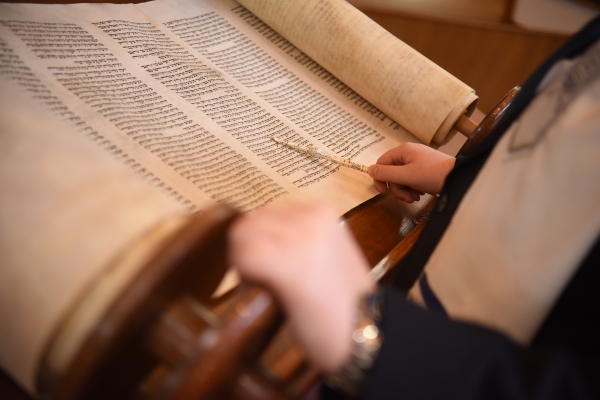Summary
Yom Kippur morning (a selection from Parashat Nitzavim Deuteronomy 29-9-14; 30-1-20): Moses addresses the assembled people, reminding them that each of them is a member of the covenant. God’s instructions are neither too difficult to learn nor too cumbersome to follow. Regardless of our profession and roles in the community, the Torah belongs to all of us. Finally, we are exhorted to “choose life,” to love God, to walk in God’s ways, and to keep God’s commandments. By doing so, we open our hearts to God and to each other.
Yom Kippur afternoon (a selection from Parashat K'doshim Leviticus 19-18, 32-37 or Genesis 50:14-26 and Leviticus 16:29-34): In the climactic chapter of the Book of Leviticus, we read that each of us can be holy. Each of us has the capacity to bring holiness into our lives and into the lives of those around us. Every act, great or small, can bring us closer to the sacred. We are instructed to leave something from our fields for the poor and for the stranger. We are told, “You shall not insult the deaf, or place a stumbling block before the blind.” We are reminded that we were once strangers in the Land of Egypt and so we must love the stranger. The way to a life of holiness is by sanctifying each moment of our lives.
Give to the URJ
The Union for Reform Judaism leads the largest and most diverse Jewish movement in North America.

Ten Minutes of Torah: Yom Kippur Commentary
Holding Ourselves Accountable on Yom Kippur and Beyond
By: Rebecca Good
When I first read this parashah, I was baffled. Why are we reading again from Leviticus on Yom Kippur afternoon?
Continue Reading